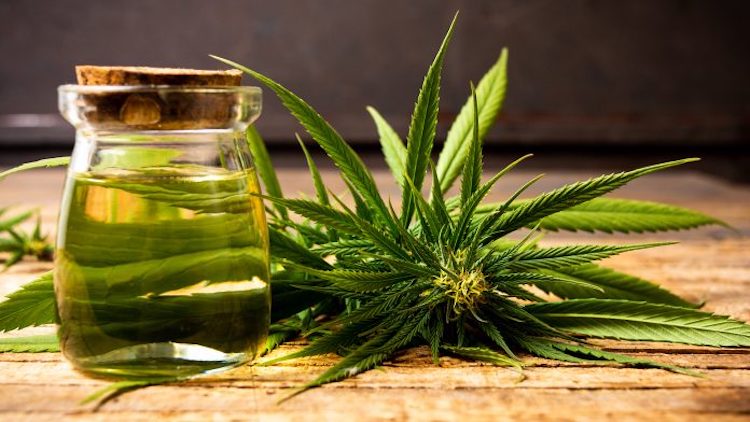Modified on: 09/05/2024
CANNABINOIDS, OR THE SUBSTANCES CONTAINED IN MARIJUANA (LEGAL AND NOT) ARE A CURE-ALL FOR THE LIVER
Legal weed, as you well know, offers numerous benefits to the body. CBD flowers, thanks to the cannabinoids that they contain (in particular thanks to CBD) is relaxing, pain-relieving, antidepressant … But not only that: it also positively affects advanced liver disease.
Are you skeptical?
Our statement is not far-fetched but is based on different scientific research (see the sources at the end of the article).
The first study we want to talk about was published in 2018 on the famous journal Liver International, which deals with promoting clinical studies related to hepatology and chronic hepatitis.

The Study Concerning the Positive Effects of Cannabis on The Liver.
The purpose of this study, carried out by numerous researchers from the University of Massachusetts, the Institut National de la Recherche Scientifique of the University of Quebec and several hospitals (including the Howard County General Hospital), was to determine the effects of the use of cannabis on the incidence of liver disease in people who abuse of alcohol.
Researchers have investigated the health status of 319,514 patients aged 18 and over who had a past or present history of alcoholism.
In order to analyze the incidence of cannabinoids on liver diseases, the researchers, therefore, divided the patients into 3 groups:
- non-cannabis users (90.39%)
- non-dependent cannabis users (8.26%)
- dependent cannabis users (1.36%)
Based on the analyses carried out, it has been shown that alcohol consumers who also use marijuana have fewer chances of developing significant liver diseases (including, for example, the dreaded HCC hepatocarcinoma, a malignant liver tumor) compared to non-users.
Warning: this is not advice to abuse alcohol and prevent liver disease with marijuana. However, this is a way to show you how cannabinoids have positive effects on our body, even in the presence of harmful substances such as alcohol.
But the study published on Liver International is not the only research carried out on the relationship between cannabinoids and liver. We see below other investigations in this regard.
Read also: Does passive marijuana smoke actually carry its effects?
Nonalcoholic Fatty Liver Disease: What Is It About?
Nonalcoholic Fatty Liver Disease (NAFLD) is a prevalent condition characterized by the accumulation of fat in the liver, not caused by alcohol consumption.
It encompasses a spectrum of liver disorders ranging from simple steatosis (fat buildup) to more severe conditions like liver fibrosis and cirrhosis. While alcohol-induced liver disease remains a significant concern, NAFLD has emerged as a leading cause of chronic liver disease worldwide, particularly in individuals with metabolic disorders such as obesity, insulin resistance, and metabolic syndrome.
Research suggests that marijuana use, both recreational and medicinal, may impact liver health through various mechanisms, including the modulation of cannabinoid receptors and anti-inflammatory properties. However, the exact relationship between marijuana and the liver, especially in the context of NAFLD, remains complex and requires further investigation.
Understanding the interplay between cannabis consumption and liver function is crucial for optimizing patient care and improving liver disease outcomes.
…vs Alcoholic Fatty Liver Disease
Alcoholic Fatty Liver Disease (AFLD) is a condition characterized by the accumulation of fat in the liver due to excessive alcohol consumption, the opposite to the above-mentioned case.
The alcoholic liver disease is a leading cause of chronic liver disease globally and encompasses a spectrum of liver disorders ranging from simple steatosis (fat buildup) to more severe conditions like liver fibrosis and cirrhosis. Chronic alcohol intake can lead to liver inflammation, oxidative stress, and impaired liver function, contributing to the progression of AFLD.
Research suggests that marijuana use may also impact liver health, although its effects on AFLD specifically are not yet fully understood.
Some studies indicate that cannabis use may worsen liver fibrosis, while others suggest potential benefits such as anti-inflammatory properties. Further research is needed to elucidate the complex interactions between marijuana and the liver in the context of AFLD and to determine its potential role in the management of this condition.
Understanding these interactions is essential for developing effective strategies for preventing and treating AFLD and improving patient outcomes.
Further Studies on the Benefits of Cannabis on the Liver: CBD Protects From Fatty Liver Disease
According to a study conducted by researchers at the Icahn School of Medicine at Mount Sinai in New York, published by the journal Free Radical Biology and Medicine, “cannabidiol protects the liver from alcohol-induced steatosis”.
Liver steatosis, also called fatty liver, is a massive accumulation of fat in liver cells. This condition, which over time leads to cirrhosis, is often caused by alcohol abuse.
The CBD, according to the researchers’ analysis, is able to protect the liver avoiding the accumulation of fat as it favors particular mechanisms. These processes are as follows:
- the inhibition of oxidative stress,
- the increase in cell autophagy, or the elimination of cells that are not necessary or harmful to the body.
A further study shows how the CBD contained in marijuana can protect the liver from the damage caused by the excess of cadmium.

Cadmium Damage to the Liver and Positive Effects of CBD: Here Are the Details on the Study
The research, conducted by researchers at the King Faisal University (Saudi Arabia), was published in 2013 in the Journal of Trace Elements in Medicine and Biology.
The study, conducted in mice, demonstrates the protective effect of CBD against liver toxicity induced by a single dose of cadmium chloride (6.5 mg per kg).
Cannabidiol treatment (5 mg per kg once a day) was applied for five days starting three days before cadmium administration.
The CBD administered to the mice performed the following functions:
- significantly reduced serum alanine aminotransferase (intracellular enzyme present in the liver that increases in the presence of liver damage);
- suppressed hepatic lipid peroxidation in chronic HCV infected patients, or the oxidative degradation of lipids;
- prevented the exhaustion of glutathione (which has antioxidant properties) and nitric oxide (the gas that allows cellular communication);
- favored the activity of catalase, a very important enzyme for our body;
- attenuated the level of cadmium in the liver tissue.
The histopathological examination also showed that the lesion of the liver tissue (caused by the administration of cadmium) was clearly improved by the treatment with CBD.
The researchers, therefore, concluded that cannabidiol can represent a potential protective substance of liver tissue from the toxic and harmful effects of cadmium.
This heavy metal is present in water, air and even in the earth’s crust and is often absorbed by agricultural crops (and consequently ingested by humans and animals).
Once taken, it is very difficult to dispose of (the time of disposal can go from 10 to 30 years) and in the most serious cases, it can lead to infections of the gastrointestinal tract, lung infections or even death.
Read also: Marijuana mincer: what it is, how it works and why it is useful
Are There Any Harmful Interactions Between Liver and Cannabis?
The potential harmful interactions between cannabis and the liver remain an area of ongoing research and debate. While some studies suggest that cannabis use may exacerbate liver fibrosis and contribute to the progression of drug induced liver injury or disease, others propose that cannabinoids could have anti-inflammatory properties that may be beneficial for liver health.
Additionally, chronic cannabis smoking has been associated with adverse effects on liver function and increased levels of liver enzymes, indicating possible liver injury. Moreover, cannabis consumption may impact metabolic processes related to liver health, such as fatty acid oxidation and insulin resistance.
However, the exact mechanisms underlying these interactions and their clinical implications are not yet fully understood. Further research, including clinical trials and longitudinal studies, is needed to elucidate the complex relationship between marijuana and liver function and to assess the potential risks and benefits of cannabis use in individuals with liver disease.
Understanding these interactions is crucial for informing clinical practice and promoting liver health in cannabis users.
Conclusions
The CBD, contained in high quantities in CBD cannabis, can be a great ally for the well-being of the liver and the prevention and control of liver pathologies, both in case of alcoholism and in case of ingestion of highly toxic substances such as cadmium.
So what are you waiting for?
Order now your CBD weed or CBD oil on Justbob!





